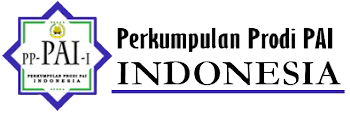INTERNALISASI NILAI-NILAI PENDIDIKAN ISLAM DALAM PELAKSANAAN SUSCATIN (KURSUS CALON PENGANTIN) DI LEMBAGA KUA KECAMATAN TULUNG SELAPAN KABUPATEN OGAN KOMERING ILIR
DOI:
https://doi.org/10.19109/pairf.v4i2.10230Keywords:
Internalization, SUSCATIN (Bride-to-Be Course)Abstract
This research discusses "Internalization of Islamic Educational Values in the Implementation of SUSCATIN (Bride-to-Be Course) at KUA Institute of Tulung Selapan District Ogan Komering Ilir District." This research aims to find out the internalization of Islamic educational values in the implementation of SUSCATIN (Prospective Student Course) for prospective brides before entering into domestic life.
This type of research belongs to qualitative research models. For this research will analyze the Application of Islamic Education Values in the Implementation of SUSCATIN (Bride-to-Be Course) at the Kua Institute of Tulung Selapan Subdistrict. The data obtained can be used as a foundation and first tool as the main basis for the implementation of research in the field. Because this study discusses secondary data. Researchers are also looking to understand information more deeply by using the theoretical foundation as a guideline.
The result of this research is the values of Islamic education given during the implementation of SUSCATIN (Bride-to-be Course) are the value of creed, sharia values, and ethical-moral values. The value of faith (belief) is directly related to Allah SWT (Hablun min Allah), such as helping the bride-to-be prepare herself ahead of the wedding by covering psychological and spiritual religion. Then the value of Sharia (experience) is the implementation of the creed of horizontal relationship with humans (hablun min nanas), such as helping the bride-to-be understand the function and role of the wife in the husband and husband the wife. And the last is the value of ethical morals (horizontal verticalhorizontal-vertical) which is the application of faith and muamalah, such as helping brides-to-be to be more mature in jumping to conclusions to marry and helping couples to understand more about the true picture of marriage.
References
Ayyub, Syaikh Hassan. Fiqih Keluarga. Jakarta: PT. Raja Grafindo Perada, 2011.
Ebe, Husain. “Fenomena Pernikahan Dini Di Tinjau Dari Pendidikan Islam Di Desa Motonwutun Kecamatan Solor Timur Kabupaten Flores Timur.” Skripsi Strata 1 UIN Alaudin Makassar, 2015.
Mardeli, Dkk. “Proses Pembelajaran Diprogram Studi Pendidikan Agama Islam FITK UIN Raden Fatah Palembang.” Tadrib: Jurnal Pendidikan Islam 3, no. 1 (2017): 53–74.
Misyuraidah. Fiqih. Palembang: Grafika Telindo, 2018.
Mustajab. “Reorientasi Pendidikan Islam Dalam Konstelasi Global.” Jurnal Prosiding Seminar Nasional Inovasi Pendidikan 2, no. 2 (2016).
Noni. Kuatnya Tradisi Salah Satu Penyebab Pernikahan Dini. Yogyakarta: LKis, 2017.
Priatmoka, Sigit. “Memperkuat Eksistensi Pendidikan Islam Di Era 4,0.” Jurnal Studi Pendidikan Islam 1, no. 2 (2018).
Sayyid Sabiq. Fiqhus Sunnah. Jakarta: Cakrawala, 2017.
Ali, Muhammad, and Syarnubi Syarnubi. "Dampak Sertifikasi Terhadap Kompetensi Pedagodik Guru (Studi Pemetaan (PK) GPAI On-Line Tingkat SMA/SMK Provinsi Sumatera Selatan." Tadrib 6.2 (2020): 141-158.
Wahab, Zulkifli. “Proses Pelaksanaan Kursus Calon Pengantin Di Kantor Urusan Agama Kecamatan Tamalanrea Dan Kecamatan Biringkanya.” Jurnal Diskursus Islam 5, no. 2 (2017).












.png)


1.png)



